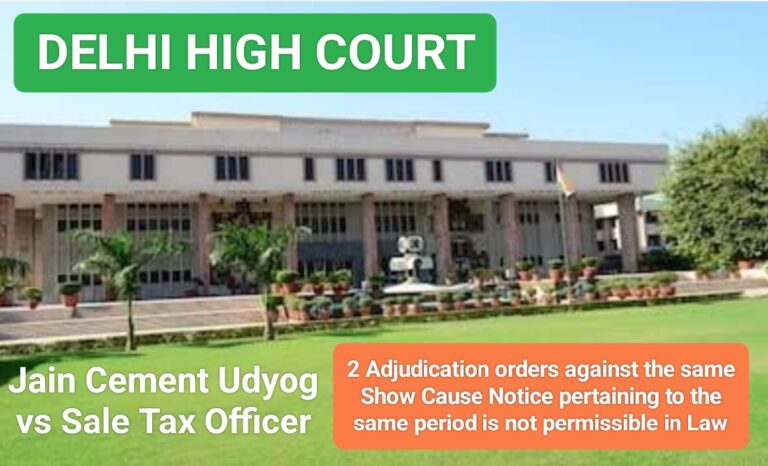The petitioner argued before court, that the issuance of this second order on the identical SCN was effectively a “double jeopardy,” constituting a misuse of power by the department.
In a significant ruling, in case of Jain Cement Udyog vs. Sales Tax Officer [W.P.(C) 12860/2024 and CM APPL. 53682/2024], the Delhi High Court has clarified that issuing two adjudication orders for a single Show Cause Notice (SCN) covering the same period is not permissible. The decision was delivered by a Division Bench comprising Justices Yashwant Varma and Ravinder Dudeja. The case involved a taxpayer issued an SCN under Section 74 of the CGST Act, 2017, which was initially adjudicated by the department, resulting in an order that the taxpayer appealed.
Also Read: 5% GST Rate Applicable for Fly Ash Bricks with Less Than 90% Fly Ash Content: Gujarat HC Ruling
While the taxpayer’s appeal was pending, the department re-adjudicated the same SCN, issuing another order on April 23, 2024, based on identical allegations for the same period under the same section, raising the same demand. The taxpayer argued that the issuance of this second order on the identical SCN was effectively a “double jeopardy,” constituting a misuse of power by the department. The taxpayer contended that this action violated the principles of lawful authority, as it lacked proper reasoning or basis for a second order.
The court observed a “prima facie apparent mistake” in the issuance of the second order dated April 23, 2024, which pertained to the tax period from July 2018 to March 2019 and was based on the same SCN originally issued on December 30, 2020. The Court noted that the initial proceedings had already led to a final order, making the second adjudication order redundant and legally unsustainable.
In line with this view, the Bench quashed the second order, ruling in favour of the taxpayer.
This decision reinforces the principle that the issuance of multiple adjudication orders based on a single SCN for the same period is not allowable under the law, thus protecting taxpayers from unwarranted duplicative actions by the department.
READ MORE
